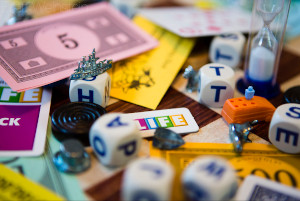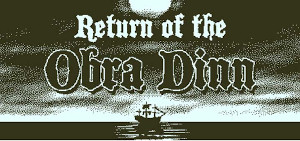Gaming pervades the insurance business
 The presence of insurance in gaming comes in various forms. First, it plays out in parlour gaming whereby insurance randomness fits marvelously with the factor of luck characterizing the very nature of gaming.
The presence of insurance in gaming comes in various forms. First, it plays out in parlour gaming whereby insurance randomness fits marvelously with the factor of luck characterizing the very nature of gaming.
Insurance is found in advert gaming or in serious gaming, later. It generally comes into play as a main plot where adverts and theoretical concepts spread out.
Video gaming, on their part, make it possible, thanks to its power of immersion, to plunge players in some professional niches such as claim adjustment tasks.
Read also | Gamification in insurance
Insurance and parlour gaming
The appearance of insurance in games is no novelty of recent time. Indeed, the “Game of Life” game, better known as “Life”, embraces the insurance principles dating back to its 1960 version. This best-seller, created in 1860 and sold over 35 million copies, has been the subject of constant updating in an effort to keep pace with society’s evolutions.
The Game of Life, along with Legos and Monopoly, is part of the 63 games recorded at the National Toy Hall of Fame in the United States. Life is a simulation of an individual’s life trajectory starting from junior high school until retirement age passing through the stages of marriage, work and birth of children.
Each player is endowed with a pawn that he or she moves forward along the way with a number of boxes ticked randomly. The pawn is endowed with six slots at the outset which fill in gradually as the player get married or has children, etc.
Dedicated spaces on the board achieve these objectives when the player's pawn lands on them. Other spots on the board trigger bonus events (such as the activation of a life insurance) or penalizing events that may hinder the player according to whether he or she has underwritten or not a life, motor or home policy.
The success reported by Life did not simply enable the culture of insurance to spread out within the community of players but it also became a source of inspiration.
INSURED card game, funded by Kickstarter platform, is also based on random events designed to influence the progress of the games. The latter are triggered by drawing cards randomly rather than moving forward a pawn.
On each round, players would take turn in buying, in return for a certain number of pieces, a card that protects against certain physical elements (fire, floods,…). Then, an event card causing a cataclysm of physical elements is drawn randomly.
The number of points earned or lost by each player will depend on his or her level of protection against the elements and the specific features for the persona chosen at the start of the game.
Insurance and video games
 There is no title worthier of illustrating the flexibility offered by video games than Return of the Obra Dinn in order to address a topic as complex as insurance. In Return of the Obra Dinn, the player impersonates the role of claim adjuster of the British Company of the Eastern Indies tasked to inspect the remains of the Obra Dinn, an English ship lost during its voyage toward South Africa in an effort to resolve the disappearance of its crewmembers.
There is no title worthier of illustrating the flexibility offered by video games than Return of the Obra Dinn in order to address a topic as complex as insurance. In Return of the Obra Dinn, the player impersonates the role of claim adjuster of the British Company of the Eastern Indies tasked to inspect the remains of the Obra Dinn, an English ship lost during its voyage toward South Africa in an effort to resolve the disappearance of its crewmembers.
In order to elucidate the investigation, the player is provided with a pocket watch chain enabling him or her to relive the scenes depicting the death of various protagonists during the voyage. The player’s objective is to establish, based on deductive reasoning, the identity of the bodies found and to assign the hypothesis about their death in the investigation records.
The end of the game proposes to conclude the investigation by granting beneficiary victims’ relatives premiums or by levying fines against them based on the conduct of the crewmembers during the voyage.
The insurer hat attributed to the main character conveys to the role a portrait devoid of empathy and simplistic consideration. Insurance involvement allows in fine a more profound treatment of the topics addressed, such as the disintegration of social bond.
Return of the Obra Dinn, which depicts itself as “a low-colored adventure on the topic of insurance”, stands out thanks to its monochrome esthetics and its narrative quality. Despite being classified in the independent category, the game is regarded as one of the best issued in 2018. It got hold of numerous prizes in the international contests, outranking most super-productions of the year.
Read also | Insurance and augmented reality
